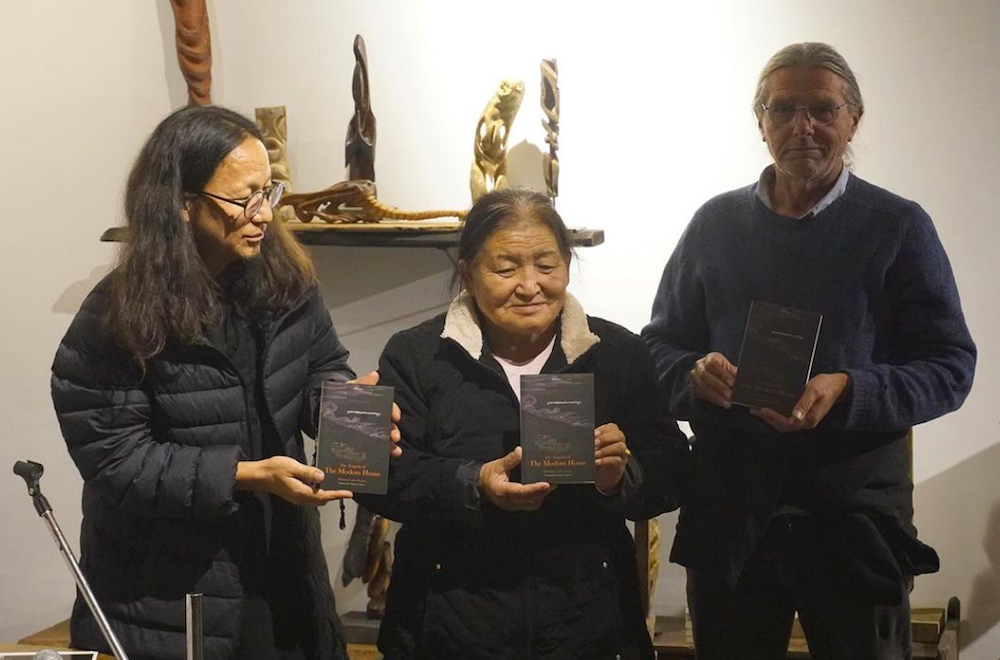By Tenzin Nyidon
DHARAMSHALA, Dec 16: A serenading performance by Kharag Penpa and his flutes set the mood for the evening at The Other Space café on Friday evening as book lovers, enthusiasts and supporters gathered for the launch of the book ‘The Tragedy of the Modom House’ at an event organised by TibetWrites, a Tibetan-run publishing outfit that supports and nurtures Tibetan writers and books.
The book encapsulates the gripping and tumultuous journey of Modom Lodro Chotso, the central character and her family, navigating the tumultuous landscape of Tibet under the Chinese occupation in the region of Kham Dagyab following the invasion.
The book chronicles the harrowing account of Modom Lodro Chotso and the tragic death of her mother, as a result of brutal torture endured during China’s political campaigns against Tibetans. The book vividly tells the story of Modom Lodro Chotso and her siblings embarking on a sad and gruelling journey, tasked with the responsibility of transporting their mother’s remains to a distant river for a proper burial.

In an interview with Phayul, Modom Lodro Chotso shared the inspiration that led to the book, recounting her encounter with the Dalai Lama. “The Dalai Lama’s encouragement to document my experiences, particularly as the sole survivor of my family, ignited a deep sense of purpose in expressing my story through writing. I believe that the book is more than just a personal narrative but as a testament to the resilience exhibited by Tibetans.”
Chotso emphasised that her intention in writing “The Tragedy of the Modom House” is to offer readers an insight into the stark realities faced by Tibetans under the oppressive regime of Chinese occupation. Her aspiration is for the book to serve as a poignant portrayal of the suffering experienced by her community, contributing to a broader understanding of the plight of the oppressed worldwide.
Originally published in Tibetan by the Amnye Machen Institute in 2003, the book has now been translated into English by Lotsawa (Master translator) Mathew Akester. This endeavour aims to widen the book’s reach and accessibility to a broader readership.











One Response
So where can I get the book? It’s not on Amazon.